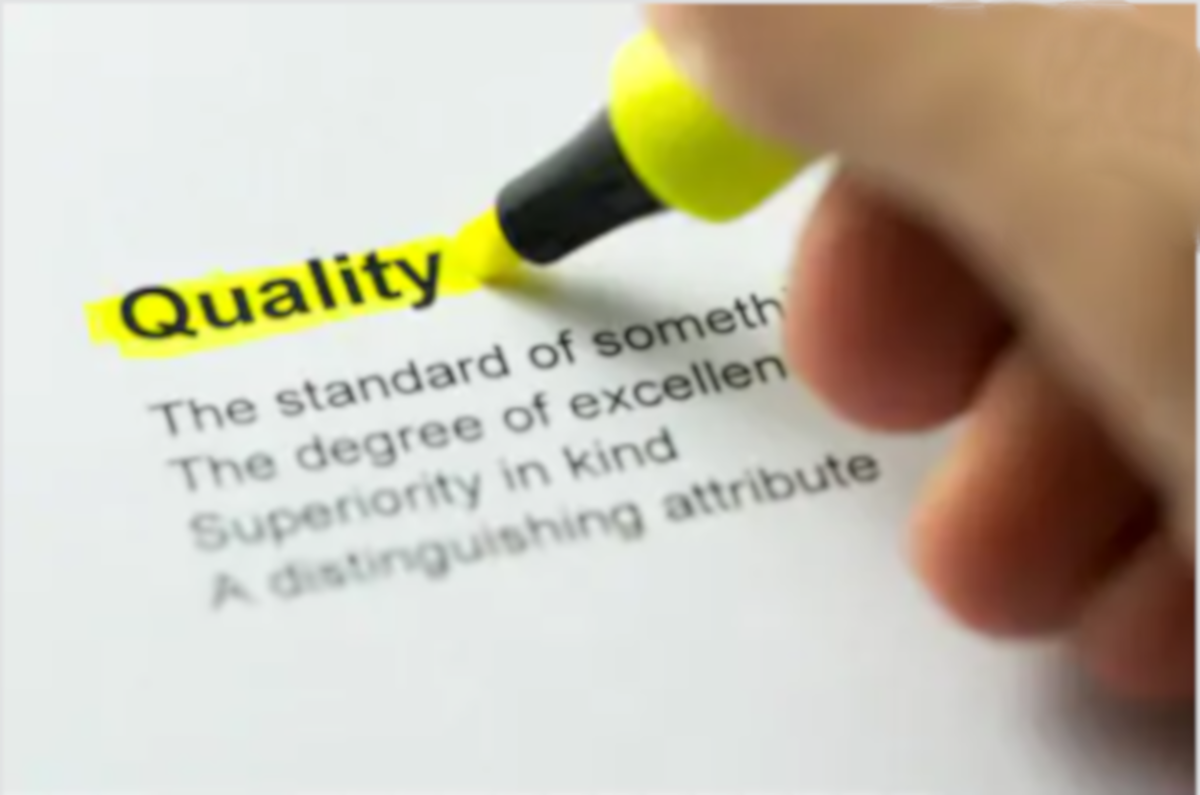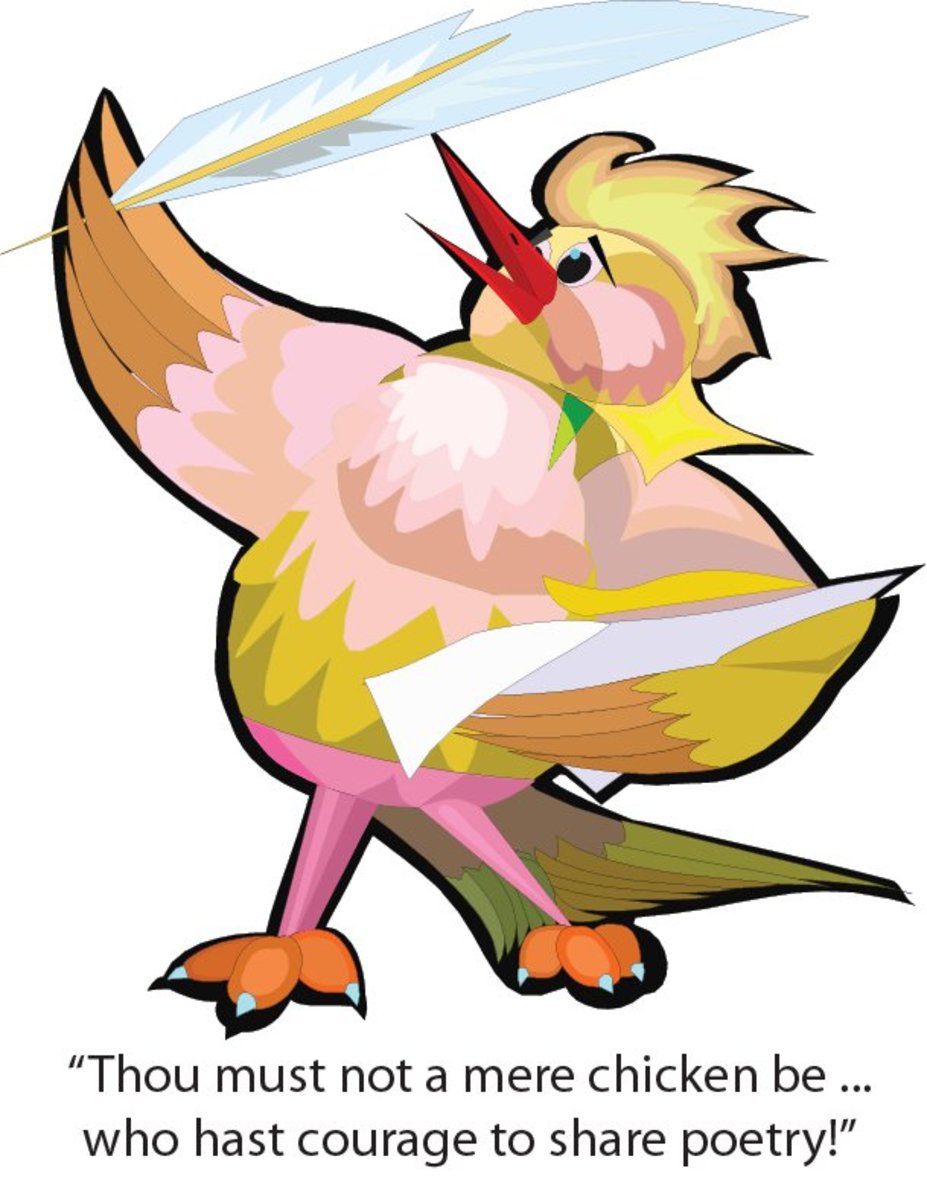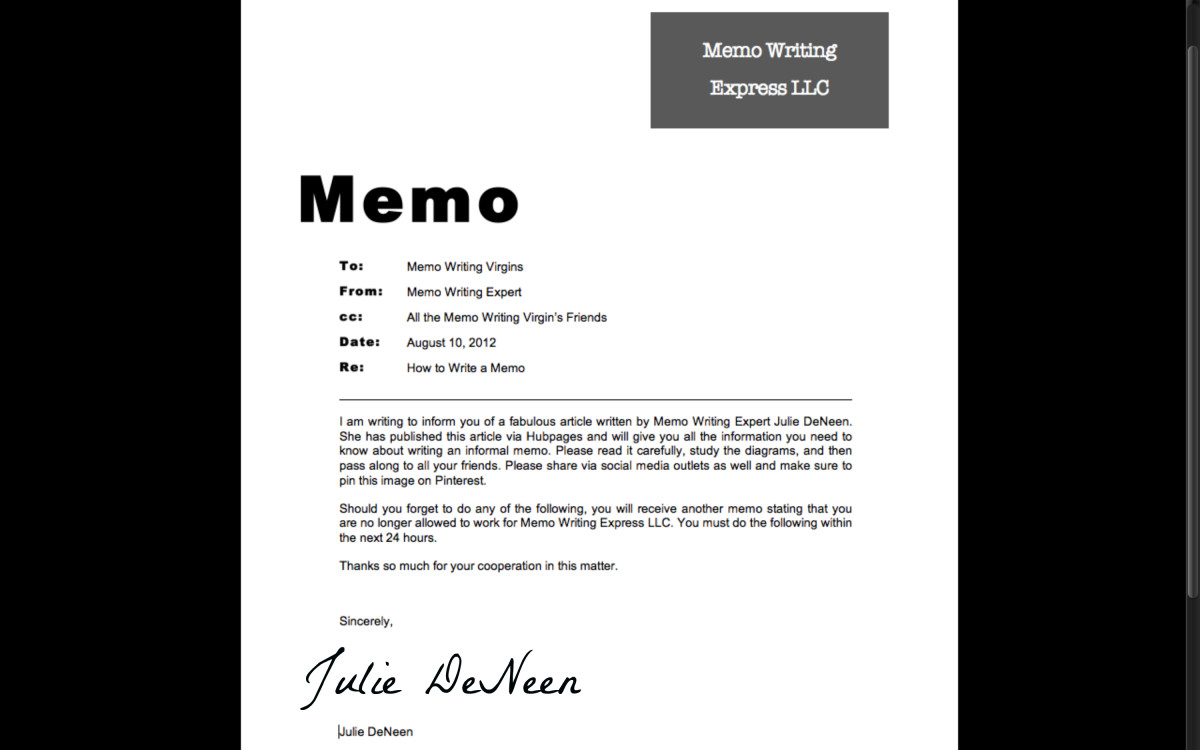How To Secure A Literary Agent: A Personal Success Story
Literary Agent Basics
For many writers, finding a suitable literary agent can be as daunting a task as actually selling a manuscript. Which begs the question -- why do writers even need an agent? Well, the short answer is, they don't always; it is possible to succeed without the help of one. However, a good agent can help you fine-tune your work before it's sent off to an editor; they also have connections and can get your work looked at much more quickly than you would on your own (which in the publishing world can take months, or even years, because it moves THAT slowly). Plus, many agents also have legal expertise and can negotiate a much more lucrative deal than you probably could. That said, agents aren't the answer for every author .-- but they are definitely valuable for many.
In my case, I've managed to secure two well-regarded literary agents in my still-growing writing career; one for a fiction manuscript and one for a non-fiction project. The first took about four months to land; the second, about two weeks. The bad news: neither work has sold yet, which unfortunately is a reality in this business -- getting an agent isn't a guarantee that you'll automatically find a home for your work. Still, agents can weed out which work might sell, and which editors might potentially be interested in your ms, which is why I've elected to use them. The following tips are based upon my experiences in getting them, and what I learned along the way. Obviously, what's worked for me might not work for everyone, but I hope my experience can give you a realistic picture of the publishing world.
Before we go on, here are a few important things to note:
1. If an agent asks you for money in any form, including an editing fee, run in the opposite direction. They should be making YOU money, not the other way around. An ethical agent doesn't charge fees, they take a percentage of your earnings. Unless they sell your work, they don't get paid.
2. Having a bad agent is worse than having no agent: If you're represented by someone who never returns your calls and doesn't "get" your work, chances are the relationship isn't going to work out. Relationships can also be strained if you don't like the way the agent is promoting your work, i.e. he or she only sends your ms to three editors and it takes seven months. Reputation is important, but it's wise to get to know an agent and his or her policies before signing on the dotted line.
3. Small, newer agencies can work in your favor: Sure, getting signed by someone at Trident is great, but consider their reputation and how many people they probably deal with! You don't want to get lost in the shuffle at a larger, more established agency. Sometimes it's better to sign with an up-and-coming agent who's eager to forge a reputation in the industry.
4. Forget About August: In the publishing world, August is a "dead" month, where everyone goes on vacation. Use the time to work on your writing rather than sending out query letters because the agents are going to return to an enourmous backlog of mail. You don't want to get lost in the slush pile.
5. Chances are you'll have more than one agent in your career: Your agent might not be able to sell your work, may not represent the genre of your next ms, or may simply have a different philosophy than you when it comes to putting out your work. Whatever the reason, it's not uncommon to have two, three, four agents in a lifetime. This is why it's important to pick up skills in securing one; you don't want to work by trial and error every time!
How To Find A Literary Agent -- Basic Tips
More Writing From NaomiR
- Revenge Of A Band Geek Gone Bad: Naomi Rabinowitz: Amazon.com: Kindle Store
And here's my finished novel: Revenge Of A Band Geek Gone Bad: Naomi Rabinowitz: Amazon.com: Kindle Store - Naomi Rabinowitz Author
Website for Naomi Rabinowitz, author of REVENGE OF A BAND GEEK GONE BAD. - Tips For Writing A Great Novel -- How To Write A Novel
Writing a novel takes hard work and dedication, but is also very rewarding. Here are tips on how to write a novel and get it published.
Links To Agent Listings
Where To Look For An Agent
It's very important to find an agent who's reputable and who represents your genre. You don't want to send a science fiction ms to a person who's looking for women's lit, for example. That said, there are plenty of guides available, both in print and online, that list lit agents. I personally prefer searching online because it's easier to narrow the field and search by category. Here are a few of my favorite sites, which I'll link to below:
1. AgentQuery: The great thing about this site is that you can type in exactly what you're looking for in terms of genre, and it'll give you a long list of appropriate agents. Moreover, each agent's listing comes with a detailed fact sheet that shares the person's education, publishing and agenting experience and the type of book deals he or she has made. It also provides contact information and notes whether the person cares to be reached by e-mail. All in all, it's an extremely comprehensive and easy-to-use site.
2. Everyonewhosanyone: This site was put together by a 60something author named Gerard Jones, as he struggled to get his novel sold (which he did eventually). In his quest, he contacted virtually every agent and editor in North America and compiled a comprehensive list (along with the e-mail exchanges he had with them, some of which were quite, uh, colorful in language). In his list, he includes the e-mails of every person on staff at a particular agency from the top agent to the assistant. It's one of the most complete lists out there and it's interesting to read through the e-mail exchanges and see his story -- pun intended -- unfold. You can also purchase his work on the site.
3. Preditors And Editors: P&E not only has a huge listing of agents and publishers (arranged alphabetically), but it points out which ones are scam artists, as well as which ones do their jobs especially well. It's constantly being updated with agent reports, and is extremely useful.
4. The Association Of Authors' Representatives (AAR): Agents who become members of the AAR have to sell a certain number of books and have to adhere to certain ethical guidelines, such as not asking for upfront fees. Most of the top agents belong to the AAR, though there are plenty of well-respected ones who don't.
Writing A Query Letter That Kicks You-Know-What
Okay, so now you've compiled a list of potential agents. What to do next? Send 'em all well-written query letters. In the publishing world, however, good writing requires more than simply spelling all of the words correctly and eliminating typos. You need to write a solid, attention-grabbing letter that's as impressive as your ms.
1. Keep it short, even in an e-mail. Shoot for about 400-500 words, tops. Agents receive so much mail, they're not going to want to waste their time reading a 2000-word description of your book. Besides, if your book concept is solid enough, you should be able to sum it up in a paragraph or two. Think of it as your backpage blurb or a "commercial" meant to hype your product. A memorable commercial may only be 30 seconds, but it sticks in your head and gives you a clear picture of what's being sold. Your query should do the same. Simply share the main points of your story; if an agent wants more details, he or she will ask for an outline or sample chapters.
2. Make sure your letter include the title (in ALL CAPS), the genre (is it women's fiction, young adult, etc. -- this is very important to know) and the word count. In the publishing world, the number of pages doesn't really matter because that can vary according to imprint. But the number of words will stay the same. Also include your name and phone number/e-mail address in the query. I personally like to include it at the very end, below my name when I sign off. This way, my phone number isn't stuck in the middle of a sentence where it can interrupt the flow. Like I said, the way a query reads can be a make or break situation.
3. Make sure you address the agent by his or her name: I always go by Mr. and Ms., just to be on the safe side because you never know if a female agent is a Miss or a Mrs. But I like to use the titles because it's respectful.
4. Personally, I like to begin queries as if I'm telling the story: "Floppy the cat's world fell apart the moment his mother was abducted by aliens..." From there, I usually launch into my book description, "In FLOPPY'S HUNT FOR UFO's, a 100, 000-word science fiction manuscript, Floppy goes from being a mere cat to an intergalactic hero..." I then continue summing up the story in a brief couple of paragraphs. Many authors like to begin their query with the book description, "MATILDA GOES TO MARS is a 75,000-word chick lit ms..." but I prefer weaving into the body of the text. Also to note: unpublished writings are generally called manuscripts, not novels or books at this stage.
5. Don't tell the agent what to think: Avoid assigning your book an adjective. Don't tell the agent, "In this exciting and witty ms, Floppy has many adventures..." Let them form an opinion on it. Also, don't compare it to another author's -- because then they will, too! You might say something like, "Fans of Stephen King may enjoy it," but if you compare it to THE STAND, you're giving yourself big shoes to fill.
6. Once you've finished describing your ms, give a brief description of your relevant experience. "Author X spent 10 years writing for FELINE UFO magazine. In addition, she was abducted by aliens and taken to Jupiter -- along with her cat." I prefer to write this in the third person, but that doesn't really matter.
7. Close out by thanking them and offering them the full ms upon request. But make sure the ms is finished first! You don't want to get an agent's attention and then have to rush to finish your work if he asks for the entire thing. Also, stay polite, but confident in your writing. Saying something like, "Please would you consider," or "Might you consider," or "I know you're busy, but..." Of course they'll consider! Those phrases just isn't as strong as a simple, "Thank you for your time and consideration." You don't want to give them any opening to think, "Might I consider?" "Well, actually, no, I wouldn't..."
8. If you know of an agent's work, you can add something in about that. Making it personal will certainly help them remember you.
9. Once your query is ready to go and typo-free, send it out. I prefer sending e-mail queries so I always send those first. I also like to send out only 10 at a time; this way, I have a chance to revise it if I see I'm getting many rejections. Put "Query" or "Book query" in the subject head so an agent knows it isn't spam.
10. Be patient. Some agents will answer you back within minutes; others, within months. You might have to send out dozens before landing one. During my first go-round, I sent out about 60 letters before securing my agent. And then a YEAR later, one of the other agents whom I'd written to sent me a rejection letter! Talk about taking her time...
How To Land A Literary Agent
Communicating With Agents
When hearing back from agents, you'll generally get five types of responses:
1. A rejection
2. A request for a partial (generally 3-5 chapters)
3. A request for a partial and an outline
4. A request for the entire ms
5. No response at all (sadly, this happens quite often)
Rejection: If an agent rejects you, great, move on. Most of the time it's simply because your book doesn't seem like something he can represent. Don't take it personally, though.
Partials; If sample chapters are requested, find out whether she wants them sent via e-mail or snail mail. Make sure to put "Requested Materials" in the subject head or on the outside of the envelope. If she wants an outline, write a detailed summary of your ms, including the ending. Generally outlines are about 5-10 pages long; they plot out the story, but don't give away every minute detail.
The Full Ms: Getting asked for this is a good sign -- it means he's very interested in your work. Expect a read on this to take a few weeks, especially if he has a second agent read it to give her opinion.
Non-fiction Outlines: If writing a non-fiction book, instead of having a completed ms, you send a detailed outline/business plan, in which you go through each chapter and explain why your work is marketable. You should write three sample chapters, though, because many agents will ask for them.
Exclusives: Sometimes agents will ask for an exclusive when it comes to reading your ms. If another agent is already reading it, tell them the truth; if he's really interested, he'll read it, anyway. Also, get a definite time period for the exclusive. Most ask for about two weeks, but you want to make sure the agent isn't hanging onto it for 11 months.
Self-Addressed Stamped Envelopes: When sending anything snail mail, include a SASE so you can get your work returned.
What Do Literary Agents Want? What Are Literary Agents Looking For?
The Final Stop
Once your ms is in an agent's hands, just wait patiently for a response. Most do not like getting calls, simply because they get so many on the job. If you get accepted right away, wonderful, but brace yourself for many rejections. Sometimes agents will be nasty about it -- I had one tell my that my lead character was "whiny and annoying" -- and some will simply send a form letter. Still, many send what authors often call, "Rave rejections," i.e., "I liked your story, but..." I've always welcomed the constructive criticism. Most of the time, the points made have been valid and I've used the suggestions to improve my writing. I actually keep a folder of all of my rejection letters for this very purpose.
In a best-case scenario, several agents will want to work with you! In that case, get to know each one and see who's the best for you and your ms. Once you agree to be represented by someone, he or she will send a contract. Don't hesitate to ask questions; a good agent will readily answer them for you.
Like finding true love, searching for the perfect agent can be a difficult and exhausting process. But if you plan carefully and don't give up, you'll have a better chance at achieving your goal.








